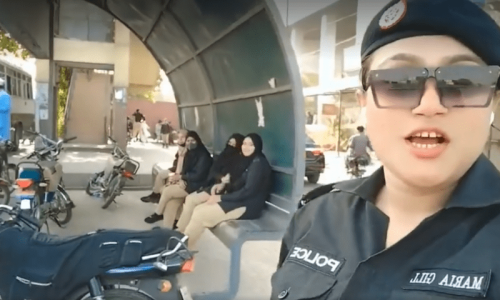‘Letters to Taseer II’ was the second in the series of exhibitions, dedicated in memory of the former Governor of Punjab Salman Taseer, which focused on the issue of religious intolerance and violence that had been exemplified by his assassination.
The malevolent bigotry that is overtly and covertly threatening the peace of our society is an increasingly alarming phenomenon that requires to be addressed by people from all walks of life. It goes to the credit of various artists that they have had the courage to take up this sensitive topic and attempted to convey a message through their individual means of expression.
The first exhibition was curated by Salima Hashmi at the first death anniversary of Taseer, showcased at The Drawing Room Gallery, Lahore. The second and much awaited exhibition was held at the same venue recently, but was curated by Umer Butt of Grey Noise Gallery, Lahore, also reputed for its unique and selective approach.
‘Letters to Taseer II’ involved more than a dozen of mostly young Pakistani artists and reiterated the complexities of violence in our society, especially in the context of socio-political cum religious biases. The imagery employed by the artists was not overtly expressive of the aforementioned, but more insidious and variegated in approach.
So while one viewed Hasnat Mehmood’s straightforward and upbeat yellow-looking neon lights on black proclaiming ‘An eye for an eye leads to more blindness’, on the other hand, was the gouache on wasli large miniature style painting ‘Polio legs’ by Aakif Suri, which referred to both—a diseased and distorted body, likely symbolising the state of our society.
R.M. Naeem’s ‘To whom it may concern’ was a dark and fascinating work in oils and acrylic on canvas. The amalgam of imagery featuring a blood splattered Pakistani flag and free floating infants appearing in the white space of the crescent shape conveyed both pain and hope.
‘Servant in scenery’ was a cynical and captivating canvas that hinted at the evils of social disparity by Salman Toor, while Sana Arjumand’s ‘I grew here’ was an eerie visual that commented on the evils inherent in our social setup through a few surreal figures and overt symbols.
Waseem Ahmad’s gouache and silver leaf imagery featuring blood red roses, visible between to silvery blocks repeatedly embossed with the symbol of a gun and random calligraphy, which was also an attractive and symbolically significant work as was the very detailed and skilful engraving on photographic paper by Adeel-uz Zafar. Zafar’s mesmerising and sinister imagery featured convoluted gauze encased shapes from which emerged the jaws of a shark.
David Alesworth’s ‘Record room 49’, a monochrome photograph of row upon row of old files seemed to be a poignant reminder of shelved legal cases and delayed justice. Rehan Bashir’s ‘Echoes of silence’ featured a stack of black and white newspapers with no visible news items but only the title, ‘Nara-i-Anul Haq’, which was also a unique means of expressing a strong belief in the universality of the human soul, a concept that now plagued by empty rhetoric.
Centuries ago, the clergy had executed the sufi saint Mansoor Hallaj for having chanted the words ‘Anul Haq’—which meant ‘I am the truth’ and which was interpreted as being a blasphemous statement. The same mindset continues in various versions, and tolerance and peaceful co-existence will perhaps continue to be an elusive goal. Nonetheless, the struggle must go on, and every endeavour in this direction must be encouraged.















































Dear visitor, the comments section is undergoing an overhaul and will return soon.